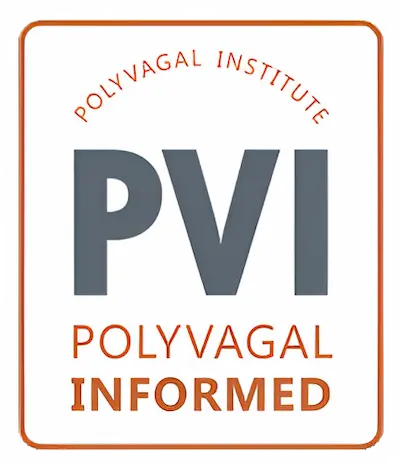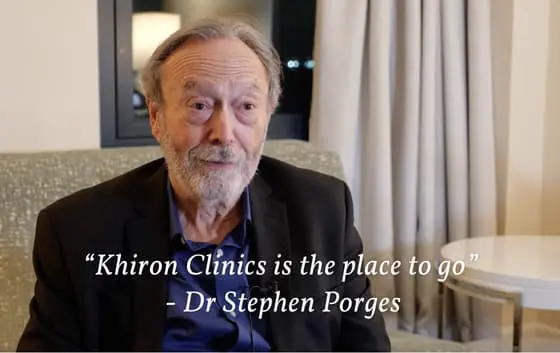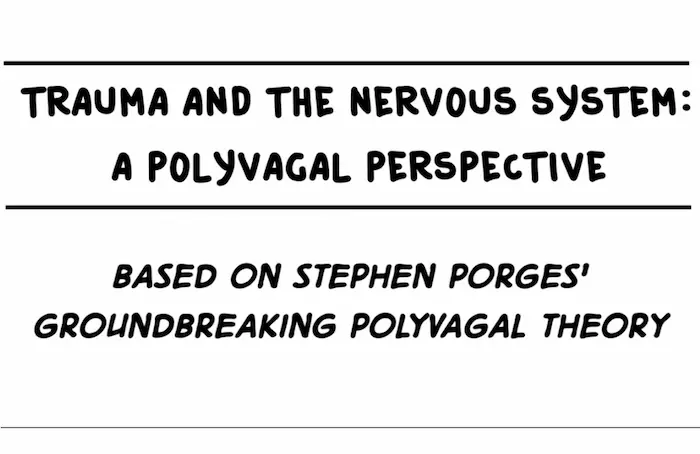We Are Polyvagal Theory Informed
Khiron Clinics; The First Polyvagal Informed Certified Residential Clinic in the World
“If you want to improve the world, start by making people feel safer.”
Dr Stephen Porges
What is Polyvagal Theory?


“If our nervous system detects safety, then it’s no longer defensive. When it’s no longer defensive, then the circuits of the autonomic nervous system support health, growth, and restoration.”
Dr stephen porges
Who is Stephen Porges?
Why a Polyvagal Informed Certification Matters

The Importance of a Polyvagal Informed Approach
Integration of Polyvagal Theory in Our Programs
The 6 Key Areas:

How We Treat
Explore our approach to trauma treatment, and gain insights into the many different nervous-system based therapies we deliver, all firmly rooted in science.

What We Treat
Trauma can manifest in a number of different mental and physical health issues. Explore our unique philosophy behind what we treat and why it gives people hope.

Testimonials
Khiron Clinics’ unique approach to trauma treatment has saved countless lives and restored hope to people who need it most. Discover their stories here.

Download the Brochure
Discover Our Innovative Trauma Recovery Pathway
Polyvagal Theory FAQs
Polyvagal Theory, developed by Dr. Stephen Porges, explains how the nervous system responds to stress and safety. It highlights the role of the vagus nerve in controlling the “fight or flight” and “rest and digest” responses. Khiron Clinics uses this understanding to help clients regulate their nervous system, promoting healing.
At Khiron Clinics, we apply Polyvagal Theory by focusing on creating a sense of safety, helping clients move from a reactive state to a more balanced, calm one. This approach supports recovery from trauma, anxiety, and other mental health challenges.
Polyvagal-informed therapy at Khiron Clinics is used to treat a range of conditions, including PTSD, anxiety, depression, and emotional dysregulation. It’s particularly effective for trauma survivors, helping them reconnect with their body’s natural regulatory systems.
Khiron Clinics offers treatments approved by the Polyvagal Institute, including trauma-sensitive therapies like somatic experiencing, trauma-informed yoga, mindfulness practices and the safe and sound protocol (SSP) that help clients regulate their autonomic nervous system and support long-term recovery.
Our therapists create a secure, supportive environment where clients start to learn how to feel safe. By fostering trust and focusing on non-verbal cues, such as tone of voice and body language, residents at Khiron Clinics can begin to regulate their nervous system more effectively.
The duration varies according to the individual, but many residents begin to notice improvements within a few weeks. Khiron Clinics’ approach is tailored to each person, ensuring progress at a pace that’s comfortable and sustainable.
At Khiron Clinics, we offer a 3 hour family workshop that offers psycho- education and guidance that includes helping families understand Polyvagal Theory and how they can assist in creating a supportive home environment.
Yes, Polyvagal-informed therapy is effective for individuals of all ages. At Khiron Clinics, we tailor treatments to the developmental stage of the client, ensuring that children and adolescents receive appropriate, compassionate care.





